Date Read: June 28th 2015
Published: June 2013
Publisher: Chatto & Windus
Pages: 290
The Blurb
Darling and her friends live in a shanty called Paradise – which of course is no such thing. It isn’t all bad, though. There’s mischief and adventure, games of Find bin Laden, stealing guavas, singing Lady Gaga at the tops of their voices.
They dream of the paradises of America, Dubai, Europe, where Madonna and Barack Obama and David Beckham live. For Darling, that dream will come true. But, like the thousands of people all over the world trying to forge new lives far from home, Darling finds this new paradise brings its own set of challenges – for her and also for those she’s left behind.
◊◊
Review – ★★ (2 stars)
NoViolet Bulawayo’s short story, “Hitting Budapest” rightly won the Caine Prize in 2011 and this story is actually the first chapter of her novel, We Need New Names. I remember back in 2013, We Need New Names was very popular but I was obsessed with Adichie’s Americanah so I was in no rush to indulge in Bulawayo’s book at the time. Also, some friends who read the book told me that We Need New Names was boring, and now I understand where they were coming from.
We Need New Names is a coming-of-age story about a ten year old Zimbabwean girl named Darling and her life in the shanty town, ironically called Paradise; as well as her life in the USA after she escapes political violence to reside with her aunt Fostalina, in Michigan. Readers are introduced to Darling’s friends who also live in Paradise: Chipo (an eleven year old who is pregnant with her grandfather’s child), Sbho, Stina, Bastard and Godknows. It was quite heartbreaking to read on how Darling and her friends searched for guavas to satisfy their perpetual hunger. On the other hand, it was humorous to witness Darling and her friends argue and quarrel over trivial matters as they embarked on their adventures and games.
But to be honest, after the third chapter I was tired of the shanty life storyline. There seemed to be no plot in this novel and I was struggling to enjoy the story. I started to enjoy We Need New Names more once Darling moved to Michigan (which happens after page 150). But some stuff Darling was getting into after she moved to the U.S was absurd to me, for example, her keen interest in watching pornography with her friends. That part of the book was awkward and probably unnecessary…
Towards the end of the book, I was sick of the plethora of stereotypes NoViolet Bulawayo dumped onto the pages. In Zimbabwe, all the people and the living conditions in the shanty town were heavily stereotyped. The poverty-porn in this book is so blatant it almost seems intentional. I know poverty and the gap between the rich and the poor is terribly wide in Zimbabwe, but the lack of a solid plot in this book made it hard to ignore the excessiveness of the sad living conditions. All the people Darling encountered in Michigan were stereotyped too – especially Mr. Eliot’s (her aunt’s former employer) daughter who just had to be white, rich, spoiled, in an Ivy League school, had an eating disorder (bulimia), was depressed and had a cute dog that donned designer-dog fashions. Why did the people Darling encounter have to be tagged with all the stereotypes associated with their race, sexual orientation, nationality?
We Need New Names has been translated into many languages! Check out the book covers below.
My favorite chapter is entitled, ‘How They Lived,’ where NoViolet Bulawayo speaks generally on the African immigrant experience in the West. It seemed pretty spot-on and I enjoyed the commentary on the struggles Africans face in raising their kids abroad, naming their kids, sending money back to family in Africa, assimilating etc.
I have a feeling this book was nominated for several awards because this is what the West loves – to read a story on African struggles with excessive stereotypes (this is just MY opinion!). Don’t get me wrong, there is a uniqueness to this book, especially in the writing style. I wouldn’t say this was written ‘beautifully’ as everyone claims, but it is surely unique.
I commend NoViolet Bulawayo for using her native language (I’m assuming it’s Shona) in many parts of the book. Words in Shona and native slang are not italicized or defined at the back of the book – readers have to decipher on their own what ‘kaka’, ‘tikoloshe’ and other native Zimbabwean (slang) words mean, and I love that. I also enjoyed how Darling’s english changed from her time in Zimbabwe to her stay in the U.S. Since Darling is the narrator of this story, the diction in the book gradually changes from broken Zimbabwean-English to ‘Standard’ English, as Darling starts to sound more ‘American’ in her speech. It was amusing (even though I was cringing) to read on how Darling would practice her American accent by imitating the pronunciation of words from the television shows she watched. Other than that, this book was a struggle for me to get into and I found myself rolling my eyes a lot! If I wasn’t buddy-reading this with a friend, I would have given up after the first 30 pages.
Other African literature book bloggers loved this book! Mary of Mary Okeke Reads and Osondu of Incessant Scribble enjoyed We Need New Names. Check out their reviews to get more positive perspectives on this novel.
This was not my cup of tea, but it might be yours! Give it a try if you don’t have anything else to read.
★★ (2 stars) – Thumbs down.

Purchase We Need New Names from Amazon
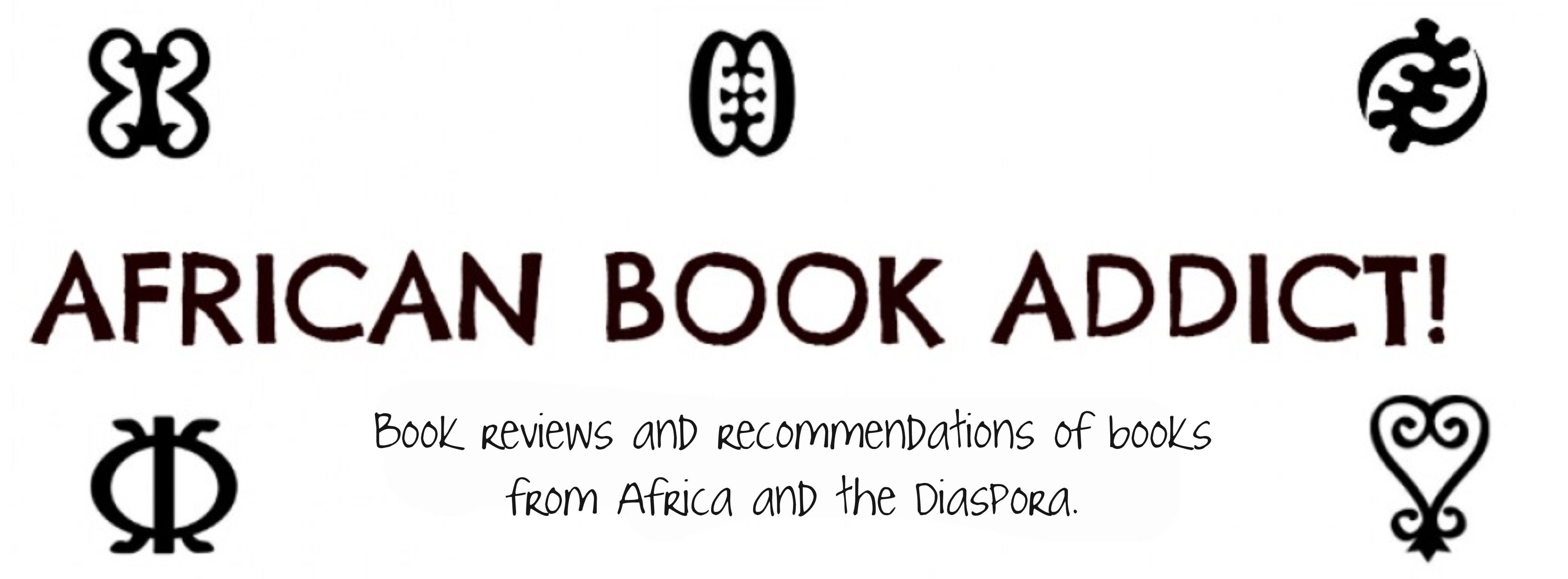

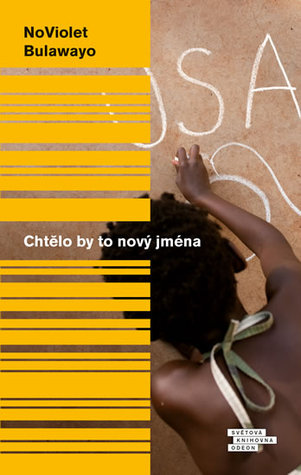
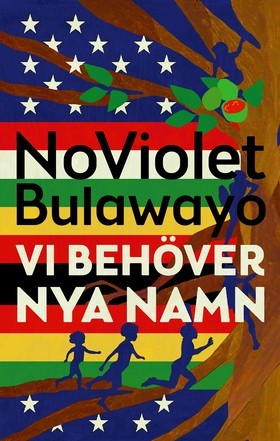
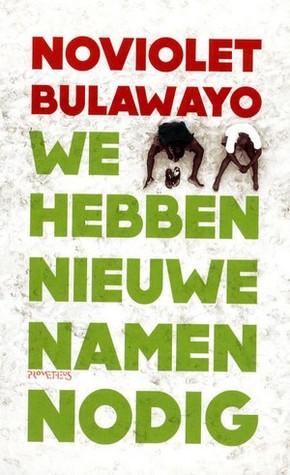
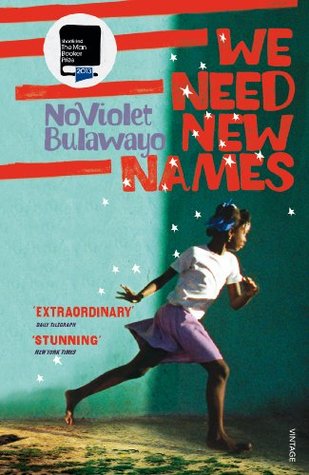
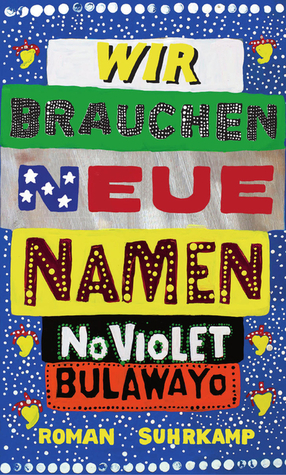
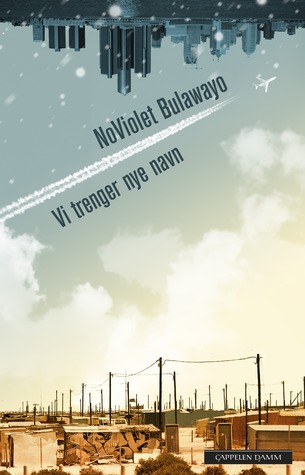



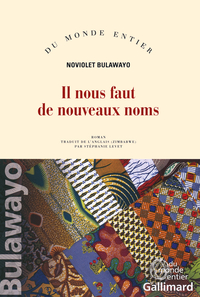

uh oh. I heard a lot about the book when it was first released and subsequently haven’t heard anything. But your point about African struggles and excessive stereotypes seems to be true in a lot of African American literature as well. Jacqueline and I had this conversation while on the way to the Brooklyn Book Festival and I subsequently sent her a Goodreads list that features a list of books by black authors that don’t include poverty, racism, colonialism, ect. I have We Need New Names and so I’ll probably read it. I’ll check out Mary’s review.
LikeLike
Hi Shannon. Hmm, I’ve seen that list on Goodreads. I personally don’t mind themes of poverty, racism, colonialism etc, they just need to be written into a solid plot and storyline. Without that, the book seems so forced and laden with stereotypes – like this one! I would like to know your thoughts on the book once you finish it.
LikeLike
Oh dear, your experience was rather different to mine. I preferred the Zimbabwean section far more than the American one which felt a bit predictable.
LikeLiked by 1 person
Hi BookerTalk! Yeah, I couldn’t get into it… I agree, the American section did feel predictable, but more bearable and interesting than the Zimbabwean section to me *sigh*. I hope Bulawayo’s future projects redeem this one for me 😐
LikeLike
Lol yeahh we discussed this. I still stand by my review cause I really enjoyed this book but I see your point after reading this. A couple of other people have said this same thing about the book. Yes, there were stereotypes but it didn’t sour my reading experience. Btw I love a lot of those book covers…
LikeLike
Thanks Osondu! Hmmm, I’m glad you see where I’m coming from now lol. I guess we can agree to disagree though hahaa. Thanks for reading and stopping by 🙂
LikeLike
That was my favourite part by far too, it made me rethink the rest somewhat, which I hadn’t been enjoying up to that point.
LikeLike
Hey Zanna! LOL, I’m glad we enjoyed the same parts of the book. I look forward to Bulawayo’s future projects, to redeem this one, at least lol
LikeLike
hmmmm Darkowaa we always agree to disagree in our review of same book. However, after reading your review you made a point, I felt what you mean. It has happened to me before with books like, for example “Say You’re One of Them” by Uwem Akpan not sure if you have read it, not recommended for the faint-hearted. One of my readers called it “blatant poverty porn”.
However, with “We Need New Names”, I sort of really enjoyed it. It is a special novel to me, a different kind. I also trust that Noviolet will deliver even more in her next novel. By the way, I like your review and I am now following incessant scribble, hearing about it for the first time.
LikeLike
Hey Mary! Thanks. Hmm, I have ‘Say You’re One of Them’ but i’m scared to read it…Yes, Osondu over at Incessant Scribble is a great reviewer, please follow him! 🙂
LikeLike
Please do read it. I’d like to read your thoughts. May be there is no blatant poverty porn after all.
LikeLike
Okay. Now that you’ve mentioned it, I will add it to my reading list for 2016 and I’ll get back to you with my thoughts 🙂
LikeLike
I’m sorry, Darkowaa – I gotta laugh! I actually enjoyed the Zimbabwean portion of this novel more than the American part, and I agree with you that there is “a uniqueness” to Bulawayo’s book and I think that’s what I appreciated most. But after reading so many reviews in which people fawn all over this book, your candor about it not loving it is refreshing:)
LikeLike
Hahaa, thank you Leslie! Yeah, a lot of people loved this book. I think I’m one of the few who just can’t deal lol. Thanks for stopping by 🙂
LikeLiked by 1 person
Look, I wasn’t able to finish this book and that’s rare because I will SUFFER before I put down a read unfinished. It’s still in the pile of books to read but I have no desire to get back to it. Mostly because she makes me such a “petty reader” which is the same side coin of what you’ve said here. Ugh! Thanks for the review. She does write beautifully but… Ugh!
LikeLiked by 2 people
Hahaaa! Finally, somebody agrees! Good to know I wasn’t the only one who struggled to finish this book. Sheesh.
LikeLike
I disagree with most people here. As a reader, I had no expectations from that book before I read it(as it is the norm with the rest)so I took it as a unique kind of writing. I enjoyed all parts of the book and noticed how the writer humorously covered topics that other writers shy away from like our faith (the pastor with a long name), rape, children and how their upbringing shape them e.t.c. NoViolet choice of words is also interesting. If you give me a book about the colonial and post colonial times or something touching on that, I would not even have a look at it. Authors have written so much of that stuff and it feels like a repetition. However, NoViolet covered such topics in a unique way that left me entertained.
LikeLike
I’m really moved by this book especially through the use of satire. I’m looking forward to your second book, lets hope it will be as interesting as this one.
LikeLike